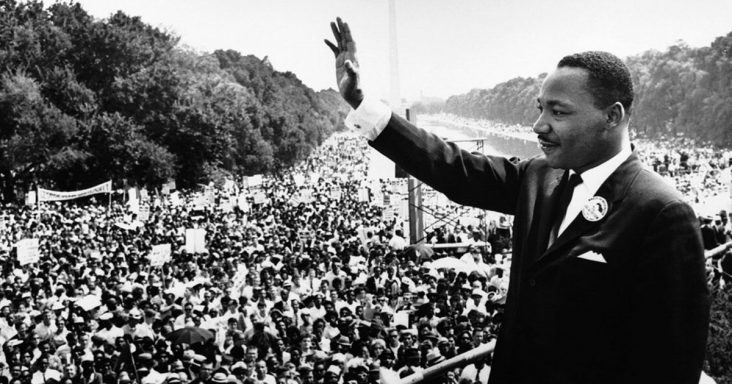UAFS-sponsored panel discusses ‘tough questions’ around race, community unity
by January 18, 2021 4:25 pm 541 views

Area civic leaders commemorated the legacy of civil rights leader Dr. Martin Luther King Jr. Monday (Jan. 18) with a discussion of their action, compassion and passions when bringing unity to the community and promoting human rights.
The University of Arkansas at Fort Smith hosted the online panel discussion “Human Rights in Time of Crisis: A Virtual Conversation,” with Fort Smith Police Chief Danny Baker; District 78 State Rep. Jay Richardson; Rev. Sona Key, founding member of Police and Community Engagement (PACE); Rita Howard Watkins, public defender; and Mayra Esquivel, activist with Arkansas Immigration Defense.
The event, organized by the Democracy Project at UAFS, was moderated by Paul Davis, senior pastor at St. James Missionary Baptist Church.
“I think back to a year ago when we had the ceremony on our campus,” Dr. Teresa Riley said. “I look back on this year, and what a different year it has been for all of us. We have learned and grown as a community and scholars at the institution, but we have so much work to do.”
The panelists agreed that today’s climate means those wanting to foster an atmosphere of camaraderie and equality means leaders need to ask the tough questions and do the work at the “intersection of faith and action” as Key put it.
“(We need to) raise up people in the community to go out and ask tough questions of your leadership, ask tough questions of people of faith. Look around, notice. … When you go into an organization, do you see people of color there? Do you see women there? Do you see members of the LGBQI there?,” Key said.
When you start noticing, you can start to make a change, she said. Baker said that the focus needs to be on building the individual to be a strong leader or member of the community.
“As the leader of an organization of 164 gun-toting police officers and 50 something non-sworn individuals, there is a lot of opportunities for things to go bad. There’s also a lot of opportunities for things to go right,” Baker said. “There is an understanding that we all share this place we live, and we have to work together.”
Leaders or those working to help others also must have compassion.
“What good is it to have these skills and do what I do if I don’t show compassion? You have to be humble,” Esquivel said.
Key also said compassion is the combination of trust, love and accountability.
“Accountability without trust is control. Love without accountability is fear. So compassion is accountability plus love plus trust,” Key said. “When I think about how to do this work, you have to build trust. You need accountability.”
Then once that is built, leaders need to have passion in their actions. Watkins said that passion, a passion to do what is right, is what keeps her fighting for defendants who might dislike or even hate her. Richardson said it’s the love of his community, family and Jesus Christ that keeps him fighting for what is best for the people of the Fort Smith area. He noted that two hot topic pieces of legislation to be discussed in the state legislature in the coming weeks include SB24, the Stand Your Ground bill, and SB3, a hate crimes bill.
“Arkansas is one of the few states without a hate crimes law,” Richardson said. “It’s very important to get one on the books in Arkansas.”
Though he can work on legislation that will help the area, he added that the people in the area need to look at its flaws.
“Our city has its own flaws and if we don’t acknowledge the flaws we have, we’ll never be the city we can be,” Richardson said.
Looking at those flaws includes asking better questions, Key said.
“We have to have a critical critique of the civil rights movement,” Key said. “Who was not present? What voices were not heard? … What we need is policy changes so that if you shoot a young black boy who is unarmed, there’s got to be consequences. We don’t need more talking. Where is the law that says black boys are an endangered species.”
She said we as a society cannot dismantle racism using a racist foundation. Baker said he is one of the leaders who needs to ask better questions. It is not about the Fort Smith Police Department, he said. It is about the community. In that vein, Baker said he does not support Blue Lives Matter.
“There is no point in that. And I understand why folks have it. But it just creates more division,” he said.
He said he tries to stay away from it as much as possible though there have been several offers made and he’s certain doing so hasn’t made him friends.
“My job is to keep the peace in the community, and that means everybody,” Baker said. “I think (it’s best to stay) away from things like that that politicize an honest to goodness movement of people who have been marginalized and who are trying to make changes to a system that creates disadvantage for someone just because of the color of their skin. … It’s completely different saying something like Blue Lives Matter. I mean we’re all people first and then we have our professions and our callings.”
Instead, he wants to focus on increasing racial harmony in the community and he hopes that through their community policing efforts, FSPD is making progress there.
